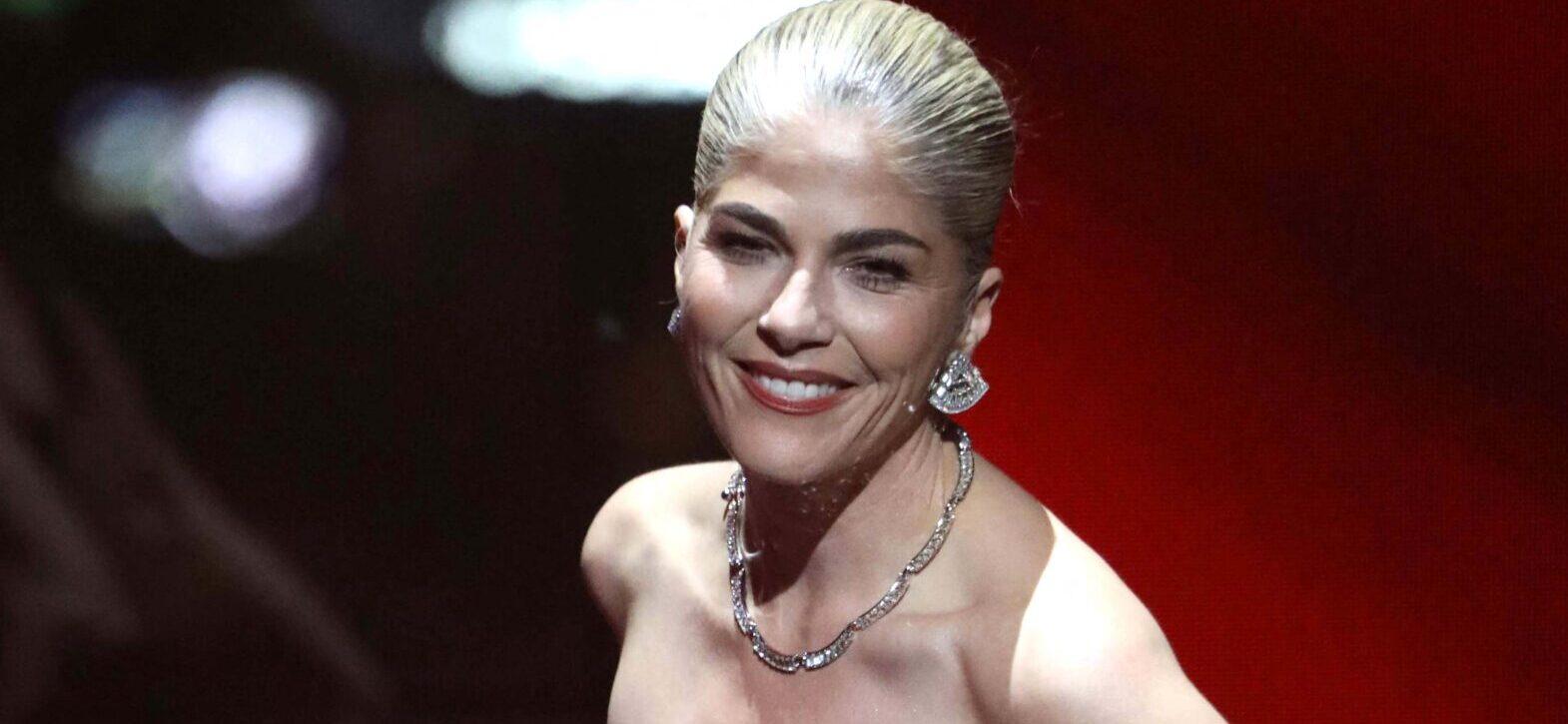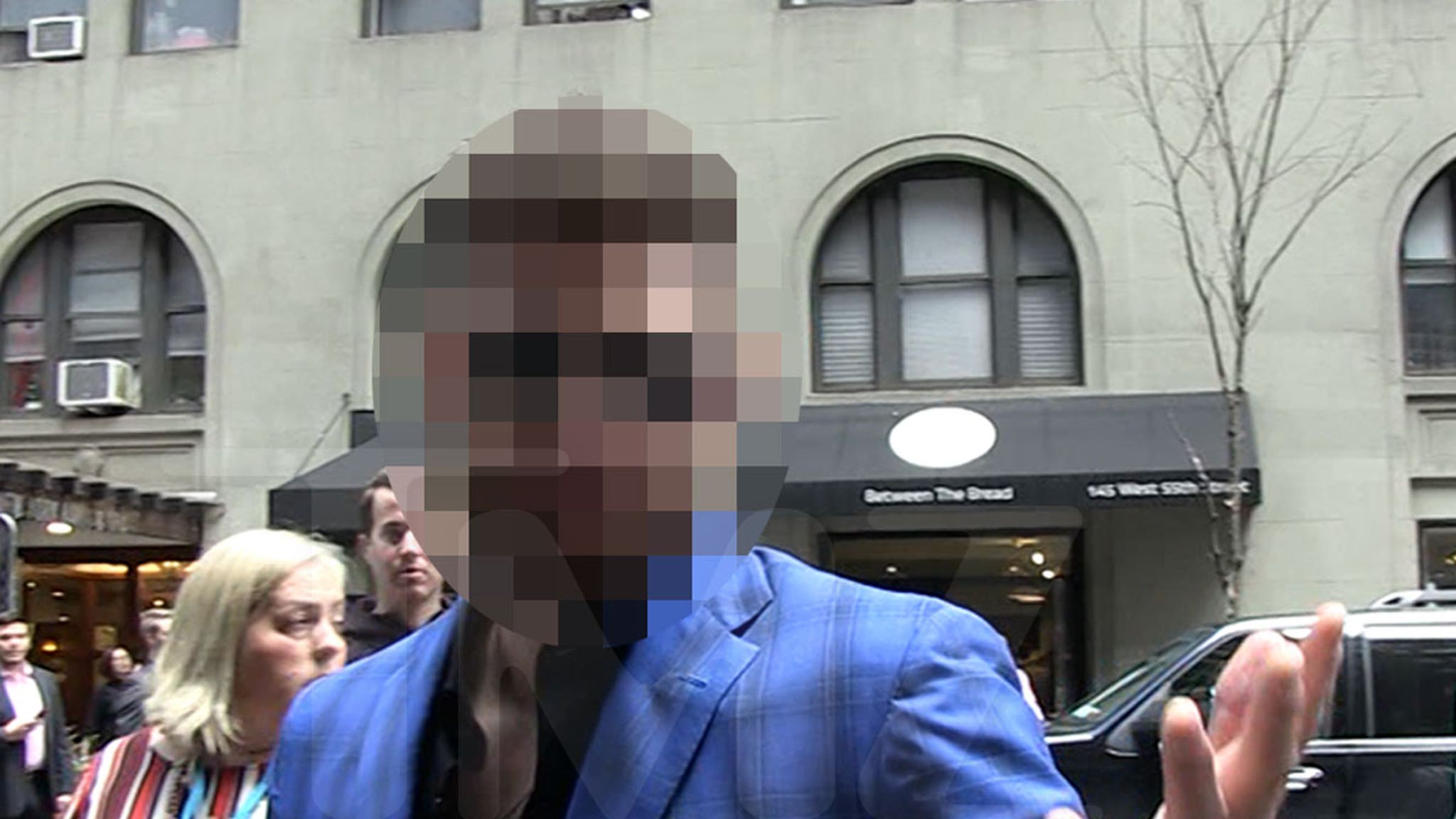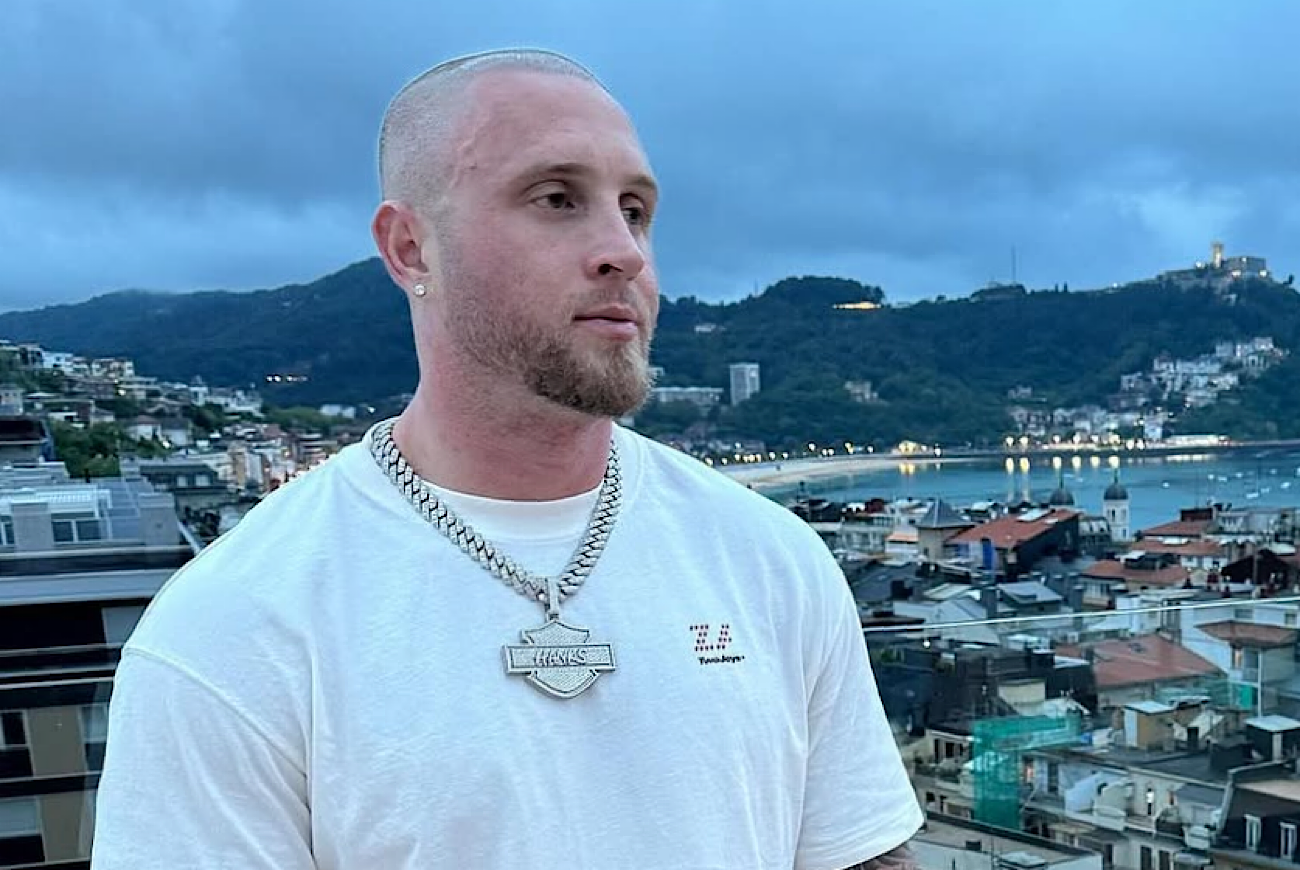Hanging on the wall next to a picturesque window view of the White House grounds in Doug Emhoff’s sunlit corner office is a handmade rectangular wood carving with the words, in all caps, “SECOND GENTLEMAN.”
When the husband of Vice President Kamala Harris and veteran entertainment lawyer took this newly titled role, it was, as he put it, an “open slate.” The election of his wife as the country’s first female VP meant that, for the first time, there would be a male spouse of one of the White House principals.
Almost three years in to this position, Emhoff said that circumstances, more than anything else, have defined what he does. In the past year in particular, he has become a leading voice on antisemitism, adding to a portfolio that has included such other issues as gender equity and mental health.
The role, Emhoff said in an interview with Deadline this week, has “evolved into helping the administration in any way I could, and unfortunately, with the rise of hate and the rise of antisemitism, even prior to October 7, being the first Jewish person ever to be a White House principal, that was a real natural area for me to jump into.”
At the lighting of the menorah on the Ellipse this month, Emhoff talked of his conversations with representatives across the Jewish community via multiple roundtables, meetings with hostage families and other events. “The common denominator of these conversations is that we’re feeling alone, we feel hated, we’re in pain,” Emhoff said in his remarks.
In the interview, Emhoff described not just the horrific nature of the 10/7 attacks but the reactions of Hamas — “the glee, the laughter, makes it so much worse.” What followed has been a “crisis” and “tsunami of antisemitism.”
“There is a rage that I think a lot of us feel [about 10/7], will always feel, but the shock of the antisemitism, unfortunately, I’d been seeing it all along,” Emhoff said. “Objectively, by ADL standards, FBI, we’ve never seen anything like the antisemitism since 10/7, but sadly to say I am not shocked by it. I saw it coming.”
For a couple of years now, Emhoff has been a key White House voice on combatting antisemitism. He spoke in a May event as the administration’s national strategy to combat antisemitism was unveiled, and had hosted roundtables and, in January, traveled Germany and Poland, including a visit to the site of the Auschwitz-Birkenau death camp
“I knew that antisemitism was clearly on the rise,” Emhoff said. “We saw that with Charlottesville and Tree of Life and so on through the first couple of years. We saw what Kanye [West] said and [white supremacist] Nick Fuentes and the banner on our freeway, the 405. I knew that I needed personally to use this platform to do something more.”
When asked why there has been such a rise in antisemitic hate incidents after 10/7, Emhoff said that he had what was kind of a “simplistic answer”: “People are looking at American Jews and placing responsibility on those Jews for actions of the Israeli government that they don’t agree with, and they are basically equating those actions they don’t agree with with the Jewish people,” he said. “And a lot of that is directed at Jewish students at college campuses. And you’re seeing the protests, and you’re seeing the slogans. There’s a whole inability of many people to hold more than one or two things in their head at the same time, and they are conflating issues.”

President Joe Biden looks on as Second Gentleman Douglas Emhoff lights the menorah during a Hanukkah reception this month in the East Room of the White House.
Photo by Doug Mills – Pool/Getty Images
Social media, he said, has exacerbated the situation, including from prominent voices. To combat it, the White House plan calls for education, safety, fighting misinformation and disinformation, and counterprogramming, he said.
“So for every horrible thing that Kanye [West] says, we need others to step up and … talk about not only that antisemitism is bad, but who Jews are, and the awesomeness of it,” Emhoff said. “That’s what we need, and we need coalitions. We need to bring the coalitions back together. Right now, there’s a lot of discourse that’s not positive among groups. We need to bring all of these groups back together and fight this epidemic of hate together, because it is not just antisemitism, it’s Islamophobia, anti-LGBTQ hate — all these that we have been fighting, because it’s all connected.”
Emhoff said that he has been speaking to figures like Pink, “who is celebrating her Jewish heritage very publicly.” He cautioned that he “can’t force anyone to do anything,” but what he is doing is checking in and having a conversation.
“It’s just trying to show the way, and that is why I have been so public from the get-go,” he said. “My message is: ‘I love being Jewish. I am proud to be Jewish. I am not going to live in fear. I am not going to be afraid. I am going to be as open as possible to hopefully show other people that if I can do it, they can do it.’”
Joel Goldstein, a scholar on the vice presidency and professor of law emeritus at St. Louis University School of Law, said that as the first Second Gentleman, Emhoff “has played a very active and constructive role in that position.”
“As a leader in the administration’s efforts against antisemitism, his work has complemented Vice President Harris’ work more generally in trying to make America more inclusive,” Goldstein wrote via email. By taking on such an active role, Goldstein noted, Emhoff has helped “expand the capacity of the administration to pursue its programmatic goals.”
Emhoff spent decades practicing law in Los Angeles, on issues ranging from contract disputes to intellectual property lawsuits. He had been a managing director at Venable and later a partner at DLA Piper, but quit that firm after the 2020 election. He said that he also has drawn on his Hollywood experience in pursuing the administration’s portfolio, while serving as the ultimate supporter for his wife, the former senator and attorney general of California.

Vice President Kamala Harris and Second Gentleman Doug Emhoff host an event celebrating the 50th anniversary of hip hop at the VP’s residence in September
Photo by Kevin Dietsch/Getty Images
“It prepared me a lot,” he said. “I worked in all aspects of Hollywood, and so being there and being successful there, you have got to have a lot of tools in your toolbox. You have got to be able to deal with very stressful situations. You have have got to have good negotiation skills. You have got to have good political skills. You have got to have a range of attributes to be successful as a Hollywood lawyer, and I did that for 30 years. And as it turns out, so many of those skills [are important] — being able to communicate a point of view, staying calm under pressure, understanding people, listening more than you speak, having some empathy for another’s position — because in Hollywood, we all have to work together.”
Emhoff’s son Cole works in the industry, and his ex-wife, producer Kerstin Emhoff, has a production company. (They also have a daughter, Ella, an artist). The Second Gentleman may not be practicing but he still teaches entertainment law at Georgetown Law School, and he still follows what is going on in the industry. “It’s in my blood,” he said.
Of the recently settled actors and writers strike, Emhoff said that he is “relieved.” “I’m glad it’s over. I’m glad the parties were able to come together and reach an agreement, and I wanted to see Hollywood get back to work and do what they do, which is to make content for everyone.”
At one point during the walkout, Emhoff’s name was even floated as someone who potentially could help settle the strikes, but he took no part. “I saw that bandied about,” he said. “It was nice to see that, but no. It had to come together the way it did, where the parties themselves all came together and worked it out. So, luckily, intervention was not needed.”
When Emhoff took on the position of Second Gentleman, there was focus on whether he would take on some of the traditional duties of a second spouse, like selecting china or picking out wallpaper. That was a bit of a throwback to past gender roles, as even some of Emhoff’s female predecessors — including Jill Biden and Karen Pence — had a signature set of issues.
“I knew coming in it was all hands on deck. I had to travel the country and help people get vaccinated, get the economy back, and just meet folks and hear what they needed and be responsive as an administration,” Emhoff said. “I didn’t have time for that stuff, although over the years I have worked with the vice president and her team on the more traditional things. But those are things that we do as a couple. I don’t think I would deign to do that by myself. We do it together.”
A typical day, Emhoff said, starts in the morning “with just being there, helping her get her day started as a good husband and getting her out the door as vice president, and then it’s focusing on my day, and it is really a mixed bag.”
A focus has been on bringing people together from music, arts and sports, he said. On a recent trip to London, for instance, he met with the Chelsea team to talk about how to fight racism. He also visited Abbey Road Studios and did a roundtable on combatting hate. Harris, meanwhile, was attending the summit on artificial intelligence.
“We try to spend some time together as a couple, and she loves to cook, so anytime she can cook, she does,” Emhoff said. “We love movies, we love to watch things together, but these are long days. She’s vice president 24/7, 365, and a lot of the job could be during the middle of the night.” Among the shows they love, he said, are Game of Thrones and House of the Dragon.
Emhoff already has been headlining fundraising events and emails for the Biden-Harris reelection effort, which looks to be a very close and very caustic campaign cycle. With the likelihood that 2024 will mean a Biden-Trump rematch, Emhoff already is putting the election in the terms of a stark choice.
“This is literally a fight between saving our democracy and someone who is out there, talking about poisoning, poisoned blood and fascism,” Emhoff said.
“This is just a very binary situation,” he said. “We have got to save our democracy. We have got to save our freedom. Coming from this entertainment community, freedom of expression, freedom of creativity, freedom of the press: All of these things are at issue.”
Given Biden’s age, Republicans already have made Harris a target of their attacks, something that is likely to continue to the general election. Emhoff said that the way he reacts to the negative coverage is to “ignore it. Because that comes with the territory. Our fight for freedom, our fight for democracy, is just too important to focus on any nonsense.”







